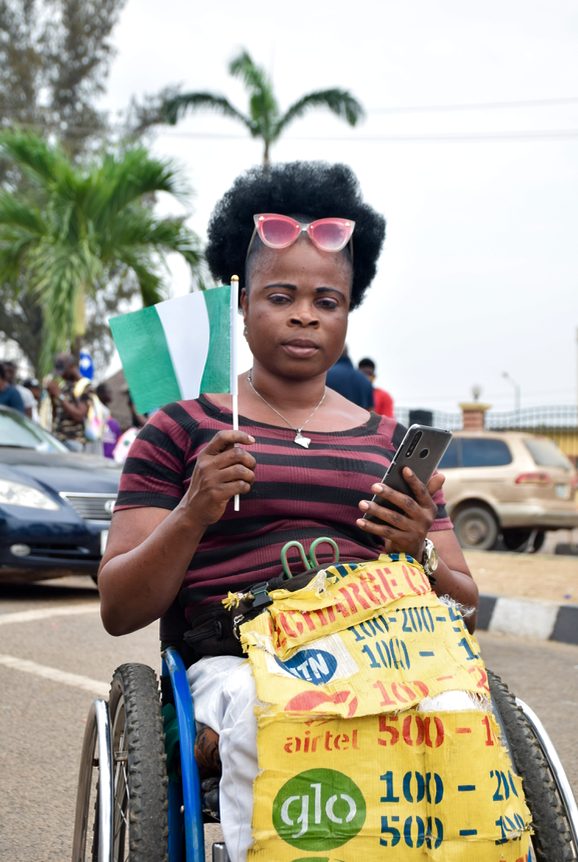NEWS
See how people with disability protested against police brutality

As young Nigerians trooped into the streets to protest against police brutality in Nigeria, people living with disability were not missing in action.
For two weeks that the #EndSARS protests rocked Lagos state where it began, they joined the agitation for a better country where the youth can live their dreams without fear or intimidation.
With their blazing placards, they marched with the crowd — fearless and unrelenting.
MANSUR IBRAHIM captures some moments with these special people who decided not to sit back, despite their conditions, while their contemporaries campaigned for a new Nigeria.
From Majid Lasisi, who hawks face masks and handkerchiefs in traffic, to Madam Kofo, who sells recharge cards at the Lagos state secretariat, they had a common message that inspired them to join the protest — even if some of them had not been directly affected by police brutality, their loved ones have been victims. Hence, the fight became a collective one.
Below are photos.

Mr Isaac joins other protesters at Lekki toll gate to demand an end to police brutality

During Sunday service at Alausa protest ground

Lasisi’s friend holds up a placard, insisting that after 60 years, Nigeria should be better

Madam Kofo, who sells airtime at Lagos state secretariat, said she’s at the protest to support the youth against police brutality

Majid Lasisi, a street hawker who sells facemarks and handkerchief, said he was at the Alausa protest ground to show support even though he’s not directly affected

When Lasisi is not protesting, he’s on the streets of Lagos hawking facemasks

Sly, a tech businessman, said he came out to show support as most of his friends have been harassed and arrested by the disbanded SARS operatives just because of the way they dress

As Sly mounts a road block, he poses with a Nigerian flag































